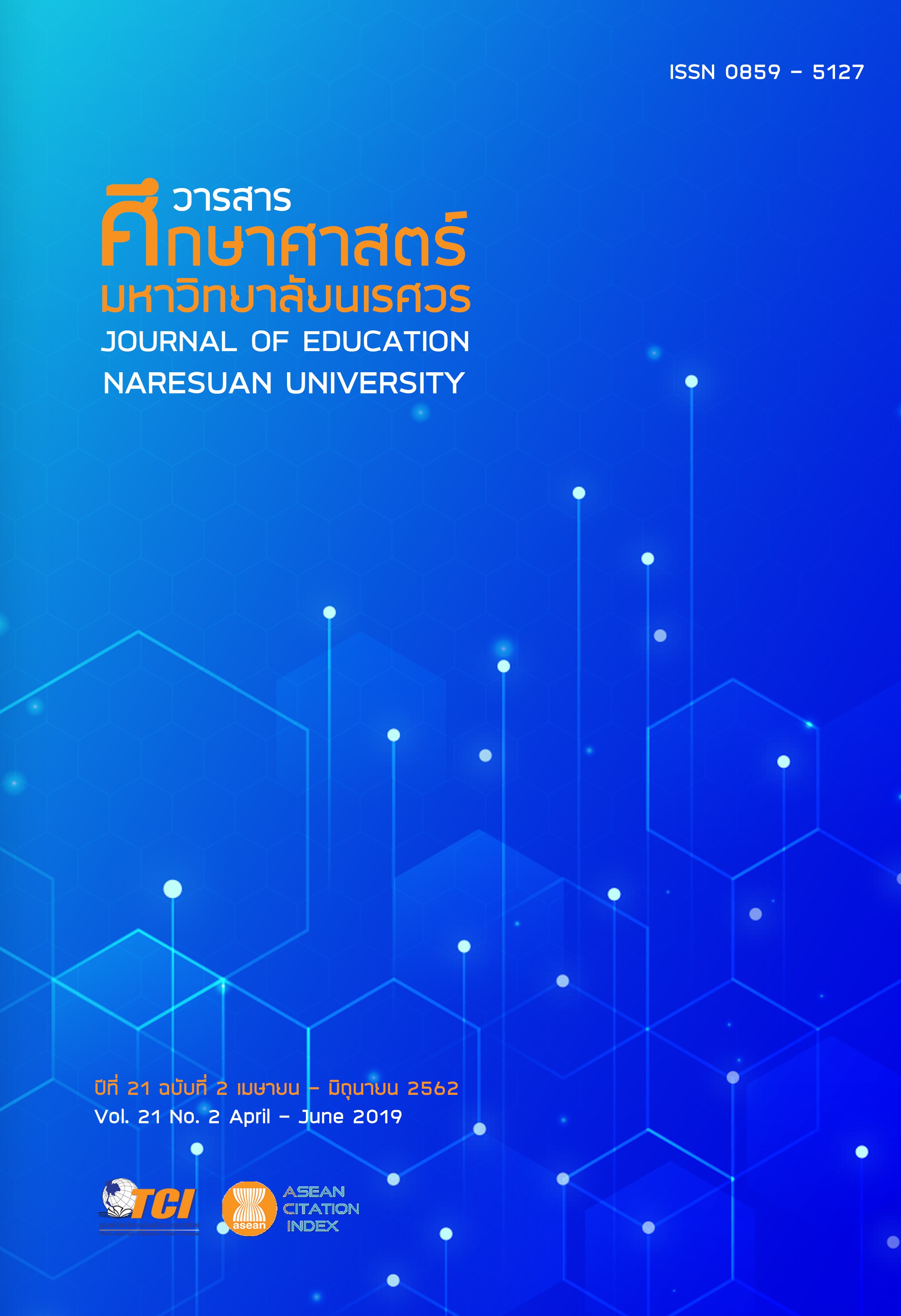IMPACT OF HOMEWORK ASSIGNMENT ON STUDENTS’ LEARNING
Main Article Content
Abstract
Homework has become an important issue for primary and secondary schools for over five decades. Although it has both academic and non-academic purposes, only a few studies have been investigated at the tertiary level. This study investigated the impacts of homework on students’ learning. Participants were 140 undergraduates from a Thai university. A set of questionnaires and focus group interviews were used. Findings revealed that homework benefited and supported students’ learning although it had some psychological impacts on their learning and affected free time management. It enabled students to acquire knowledge, developed learning skills, and increased academic achievements. Also, it promoted student’s collaborative skills and speaking between teachers and students for homework clarification. Findings further indicated that internet was one of the powerful tools for students’ learning and homework information. Based on the findings, this study suggests strategies and implications for teachers’ instructions and effective implementation of homework for students’ learning outside class.
Article Details
The owner of the article does not copy or violate any of its copyright. If any copyright infringement occurs or prosecution, in any case, the Editorial Board is not involved in all the rights to the owner of the article to be performed.
References
2. Bembenutty, H., & White, M. C. (2013). Academic performance and satisfaction with homework completion among college students. Learning and Individual Differences, 24, 83 – 88.
3. Cooper, H. (1994). Homework research and policy: A review of the literature. Newsletter, 2(2).
4. Cooper, H. (1989). Synthesis of research on homework. Educational Leadership, 47(3), 85 – 91.
5. Cooper, H. (2008). Homework: What the research says. National Council of Teachers of Mathematics, 1 – 3.
6. Cooper, H., & Valentine, J. C. (2001). Using research to answer practical questions about homework. Educational Psychologist, 36(3), 143 – 153.
7. Cooper, H., Robinson, J. C., & Patall, E. A. (2006). Does homework improve academic achievement? A synthesis of research, 1987 – 2003. Review of Educational Research, 76(1), 1 – 62.
8. Dörnyei, Z. (2007). Research methods in Applied Linguistics. Oxford University Press.
9. Janjua, F., Malik, S., & Rahman. (2011). Learning experiences and academic adjustment of international students: A case study from Pakistan. Journal of Language Teaching and Research, 2(6), 1359 – 1365.
10. Keith, T. Z., & Cool, V. A. (1992). Testing models of school learning: Effects of quality of instruction, motivation, academic coursework, and homework on academic achievement. School Psychology Quarterly, 7(3), 207 – 226.
11. Kralovec, E., & Buell, J. (2003). End homework now. Association for Supervision and Curriculum Development, 39 – 42. Retrieved from https://tchsmcdonald16.weebly.com/uploads/3/7/6/7/37670817/___article_end_homework_now__
kralovec___buell_.pdf
12. Krashen, S. (2005). The hard work hypothesis: Is doing your homework enough to overcome the effects of poverty? Multicultural Education, 12(4), 16 – 19.
13. Latif, E., & Miles, S. (2011). The impact of assignments on academic performance. Journal of Economics and Economic Education Research, 12(3), 1 – 11.
14. Letterman, D. (2013). Students’ perception of homework assignments and what influences their ideas. Journal of College Teaching and Learning, 10(2), 113 – 122.
15. MetLife, Inc. (2007). The MetLife survey of the American teacher: The homework experience. Retrieved from https://www.metlife.com/assets/cao/contributions/ foundation/american-teacher/metlife-survey-american-teacher-2007-homework-experience.pdf
16. Muijs, D., & Reynolds, D. (2011). Effective teaching: Evidence and practice. SAGE Publications.
17. Núñez, J. C., Suárez, N., Rosário, P., Vallejo, G., Cerezo, R., & Valle, A. (2015). Teachers’ Feedback on Homework, Homework-Related Behaviors, and Academic Achievement. The Journal of Educational Research, 108(3), 204 – 216.
18. Paudel, J. (2012). Dealing with homework in English language teaching: A case of dadeldhura district. Journal of NELTA, 17(1-2), 50 – 60.
19. Ramdass, D., & Zimmerman, B. J. (2011). Developing self-regulation skills: The important role of homework. Journal of Advanced Academics, 22(2), 194 – 218.
20. Slavin, R. E. (2014). Educational psychology theory and practice. Person Education.
21. Strauss, A., & Corbin, J. (1990). Basics of qualitative research: Grounded theory procedures and techniques. Sage Publications.
22. Tangjitnusorn, K., & Sukavatee, P. (2016). The effects of community-based instruction using Hybrid learning on English oral communication for tourism industry of undergraduate students. Journal of Education Naresuan University, 18(4), 14 – 28.
23. Trautwein, U., Köller, O., Schmitz, B., & Baumert, J. (2002). Do homework assignments enhance achievement? A multilevel analysis in 7th-grade mathematics. Contemporary Educational Psychology, 27, 26 – 50.
24. Tsai, K. C., & Jiang, H. Y. (2013). Chinese and American Third Grade Students’ Perceptions of Homework. International Journal of Economy, Management and Social Sciences, 2(6), 212 – 216.
25. Warton, P. M. (2001). The forgotten voices in homework: Views of students. Educational Psychologist, 36(3), 155 – 165.
26. Wilson, D. (2002). Homework: Enhancing learning and raising achievement. TOPIC, 28.


